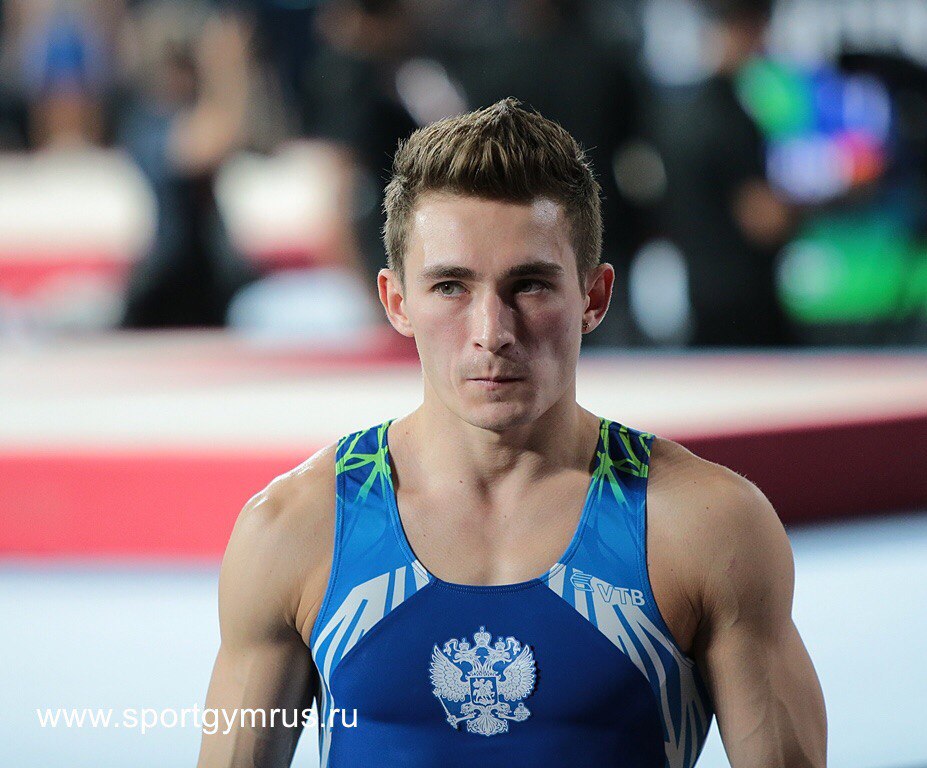David Belyavskiy gave an interview to CSKA when he landed in Moscow. He talked about his mistake in the all-around and the atmosphere at Worlds.
Q: How much were you affected by the unsuccessful all-around final before competing in the apparatus finals?
A: Actually I was pretty calm before the apparatus finals. I understood well that these are different competitions, I know how to do these apparatuses – say, pommel horse – I’ve never had any problems on it. So I just got myself together and tried to do my best.
Q: What exactly happened on the last apparatus in the all-around?
A: I don’t understand what happened. My coaches and I discussed this and made a conclusion that it was just bad luck. It happens.
Q: Was it possible to fight for gold on pommel horse?
A: For now – no. The winner, Max Whitlock, has 0.5 more in difficulty. I was better than him in execution, but I’m losing him in difficulty.
Q: Are you planning on upgrading your routine in the future?
A: I’ve already upgraded it by 0.2 after the Euros SpringSpering. So, I think that we’ll continue upgrading it in the future.
Q: What was the team atmosphere during the Worlds?
A: We all have very good relationships in the team. We are all talking to each other, always supporting, cheering on each other, congratulating. Even if we don’t perform well, we always stick together.
Q: Maria Paseka criticised the competition’s organization.
A: I really didn’t like the organization. This is the 7th World Championships I’ve attended. First, I didn’t understand how they were meeting us [at the airport]. For some reason, they took us [and put on the bus] together with the French team and first drove to their hotel which took a whole hour, while our hotel was only 20 minutes away. At the end, we were just driving around for 1,5 hours, and that’s after a difficult flight, it was pretty hard.
Q: Conspiracy against Russia?
A: I think they just didn’t take little things like that into account. Maybe, the bus couldn’t turn around there or the intersections didn’t allow to go directly to our hotel. Generally the whole situation with the buses there was a disaster. Once the guys came to the stop according to the schedule, but it turned out that the bus already left. At the end, they arrived at the podium training half an hour later.
Q: The condition of the apparatuses was also criticised.
A: I’m also kind of guessing that they weren’t in the best condition. The floor was softer than usual. I think that people were kind of breaking through the surface and that’s why there were so many injuries.
Q: Was it because gymnastics isn’t the most popular sport in Canada?
A: I don’t know. Perhaps, the equipment was sitting somewhere in the warehouse for a long time. Like, they bought it 5 years ago and then put somewhere and it was sitting there.
Q: Canada is in a very inconvenient time zone. How were you able to adapt to it?
A: We arrived 4 days before the competitions. I don’t think we’ve ever arrived this late before, but that’s what the coaches decided and, at the end, we were able to adapt. By the finals, we were feeling good.
Q: How did the doping officers treat the Russian team?
A: I was taken to the doping test once, after the bars final. The officers treated me fine, they even took a picture with us.
Q: What are your plans for the next few days?
A: I’m going home now, I’ll rest there a bit, recover and then I’ll get back to training.
Photo: Russian Federation of Artistic Gymnastics



